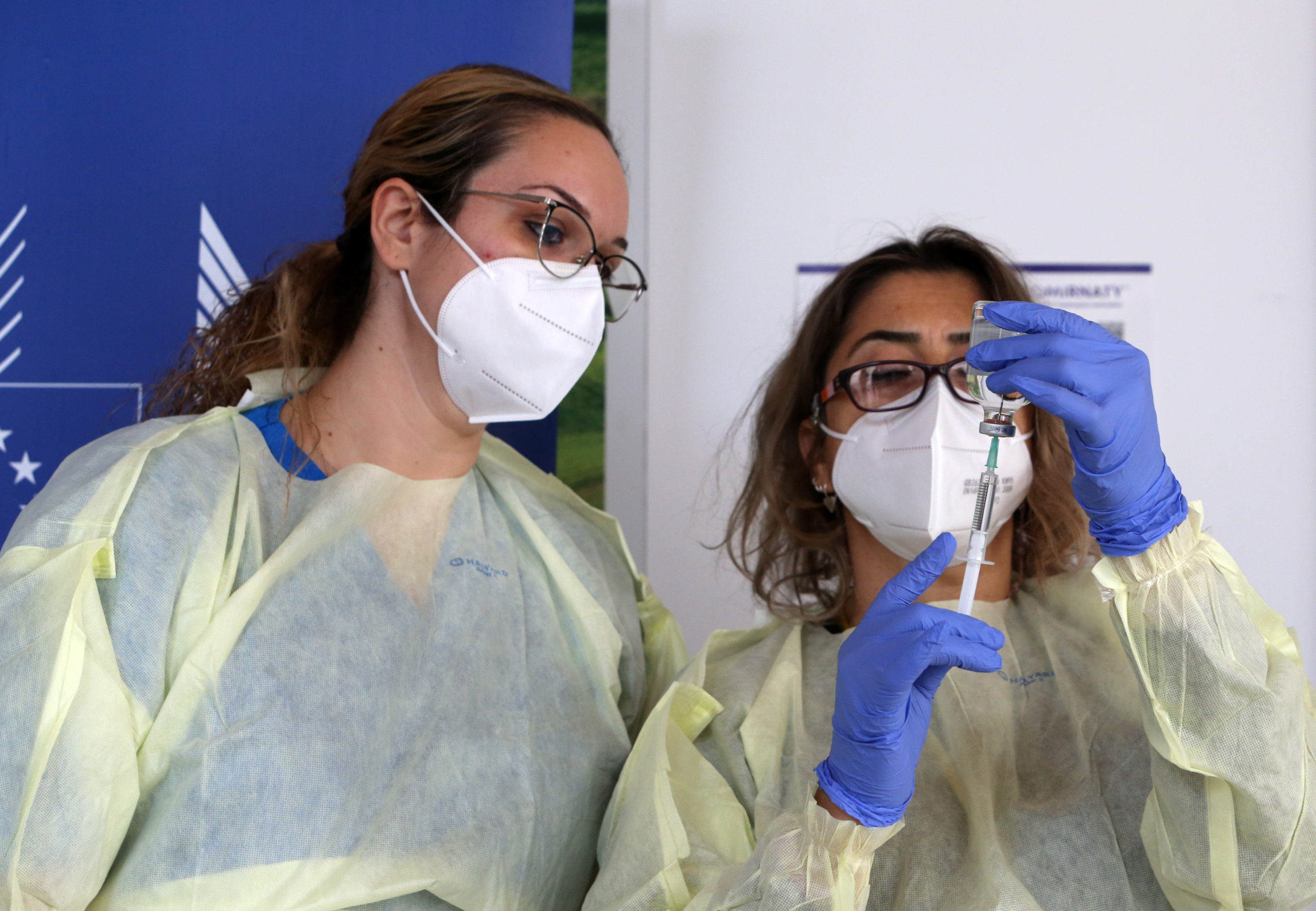Two people died of COVID-19 it was reported on Sunday, after two consecutive days of no deaths in Cyprus, raising the month’s total to 76 and equaling the December figure, considered the worst to date.
But the number of new SARS-CoV-2 infections and patients admitted in hospitals seems to be receding, albeit at a slow pace, as Cyprus starts lifting some lockdown measures as of Monday.
Both cases – a 71 year old woman and an 80 year old man – died at Nicosia General hospital. They had underlying health issues and raised the death toll since the pandemic started to 199.
So far, 134 were men (67%) and 65 were women (33%) with an average age of 79.5 years.
In all, some 140 coronavirus patients are being treated at four state hospitals, of whom 50 are critical, unchanged from the day before.
However, a record 28,364 PCR and rapid tests diagnosed 106 new SARS-CoV-2 cases, with a national sample positivity rate of 0.37%.
The new infection numbers are below Friday’s 119 and Saturday’s 113, suggesting the Lockdown II measures imposed on January 10 may be producing results. This is a far cry from the record 907 new cases on December 29.
To date, Cyprus has diagnosed 30,876 infections.
With a significant number of people returning to work on Monday, securing a negative rapid test result was a precondition, prompting the record test numbers.
Of these, 1067 employed the PCR molecular method and 27,297 of the less-accurate antigen rapid tests, that, however, produce a result within 15-20 minutes. Nearly half were tested in Nicosia.
Contact tracing tested 284 people and diagnosed 25 new cases, while a mere 71 resulted from the rapid tests on the day.
These were mainly in Limassol with 35 positive results, 19 in Nicosia, 13 in Larnaca, 2 in Paphos and 2 in Famagusta.
Increased rapid test programme
Hairdressers, barbers and nail salons will reopen as of Monday, with the number of people allowed back in the private sector rising from 25% imposed on January 10 to 50%. However, at least 20% of the employees at any workplace must carry a negative rapid test.
The health ministry added that as of Tuesday, February 2, all those returning to work on February 8 must have secured a negative rapid test in advance.
These include retail shop employees, teachers at elementary schools and graduating classes of the lyceums and technical schools, as well as staff at museums and archaeological sites. In all, 80,000 people are expected to have returned to work as of February 8.
To ensure a smooth testing programme, the health ministry has introduced an alphabetical registration system, as follows:
Tuesday, February 2: Α – Γ (Greek), A – D (English);
Wednesday, February 3: Δ – Ι (Greek), E – I (English);
Thursday, February 4: Κ – Λ (Greek), J – M (English);
Friday, February 5: Μ – Ο (Greek), N – R (English);
Saturday, February 6: Π – Σ (Greek), S – V (English);
Sunday, February 7: Τ – Ω (Greek), W – Z (English).
In all, 53 testing centres will be operational, most of them working from 8.30am to 6pm.










